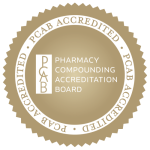Human health care has been dehumanized for long time now. It’s no news to anyone. It’s not driven by the care, it’s driven by the $ sign!
Veterinary medicine is following the trend – corporatization is the name of the game. Corporate run of veterinary medicine is making it harder and harder for the “little guy” – the small veterinary practice – to survive. To survive and stay successful in this environment, one must be resilient and creative. Preserving the passion for your profession, the caring and love for your furry patients, practicing with pride, dignity and freedom is what you place on one side of the balance when you decide to stay in a private practice and design it accordingly, even if you have to pay a stiff price for it.
It’s been more than one and a half year since Jason Clenfield of Bloomberg Business wrote this well-documented and very brave article: “The High-Cost, High-Risk World of Modern Pet Care –
A wave of corporatization is hitting the veterinary industry, but does a one-size-fits-all approach work?”
https://www.bloomberg.com/news/features/2017-01-05/when-big-business-happens-to-your-pet
While horrified by its revelations, I am still reading it with fascination. It shows with so much clarity how far we’ve come in “dehumanizing” our own world where $ sign is imposed on us by the big corporate as a core value in our current society.
If in the human health care, the high-cost, high-risk world is led by the few large drug manufacturers, hand in hand with our legislators, in the veterinary world it seems to be conducted by two or three “whale” corporations that keep on swallowing the “little fish”.
It is degrading and humiliating for any medical professional to be forced to practice as a machine with no brain and no heart, just as a money-making tool for the “big guy – the corporate”.
Before anything else, I like to believe that we did not forget that we are humans, and we have a heart to love other humans and to love our pets – that became in this modern era our precious family members.
Veterinarians are passionate medical professionals that love animals and care for them. That is why they chose this profession. I hope you are one of them.
To protect the profession and the private practice, the veterinarian must be creative and have a well-designed practice with the focus on personalized care for pets.
When the trend in most industries is customization/individualization/personalization – the most appropriate and obvious one to do so – is health care – may it be for humans or animals.
What can be more “natural” than that?
Reality of veterinary practice demonstrates that the need for individualized care in the treatment of animals is much more obvious than in humans. The variety in species, breeds, sizes, weights, drug metabolism specifics, sensitivities to certain inactive ingredients, ages, etc. creates unique scenarios requiring unique treatment needs that are impossible to be met by the available approved animal drugs.
It is known that many drugs prescribed for veterinary patients are extra-label use of either approved human medications or animal medications approved for other species. These are considered compounded medications by the FDA, as their original intent is altered.
If you are already using a veterinary compounding pharmacy, you know that you can always go the extra step and further customize the medication for the pet with a preferred route of administration, dosage form and/or flavor.
Statistics show that non-compliance may account for about 75% of treatment failures in some veterinary practices.
What leads to non-compliance?
Difficulty in administering the medication to pets is the number one reason. It may be due to:
- The bitter taste of the drug – that can be modified by adding a flavor through compounding
- The pet refuses to swallow pills – the dosage form can be changed to fixed oil suspension, or a treat, or even transdermal gel – through compounding
- The pet needs an exact strength that is not commercially available – can be adjusted through compounding
- The pet has a condition that may require a combination of several drugs – this can be achieved through compounding, etc.
Pharmaceutical compounding will drastically help improve your patient’s compliance and that will make you a successful veterinarian. Thus, incorporating the services of a carefully selected compounding pharmacy in the design of your private practice is a major component of it.
Make HALDEY Pharmaceutical Compounding your selected choice of compounding pharmacy.
Allow one of HALDEY’s experienced pharmacists assess your practice’s needs for compounding.
Call and talk to one today!
References:
Walk Through These Doors, Your Odds for Good Care Vanish – Mercola Healthy Pets – Dr. Karen Shaw Becker
The High-Cost, High-Risk World of Modern Pet Care – A wave of corporatization is hitting the veterinary industry, but does a one-size-fits-all approach work? By Jason Clenfield, January 5, 2017, 5:00 AM EST Updated on January 9, 2017, 5:43 PM EST
Information on the process and solutions of canine otitis: June 2015 Apothagram Consultant’s Corner – Compounding: Solve a Common Canine Problem
Information on compounding for canine otitis: June 2015 Apothagram Formula Spotlight – Additional Compounding Options for Veterinary Otic Gels
Moriello, K. A. (n.d.). Overview of atopic dermatitis. Merck Veterinary Manual. Retrieved from http://www.merckvetmanual. com/integumentary-system/atopic-dermatitis/overview-of-atopicdermatitis
Coalition wants veterinary access for economically at-risk pets – https://www.avma.org/News/JAVMANews/Pages/161201b.aspx
Can Vet J. 2008 Jun; 49(6): 603–606. PMCID: PMC2387271 PMID: 18624073 The Art of Private Veterinary Practice
The other side of public relations
https://www.nap.edu/read/13413/chapter/4 Workforce Needs in Veterinary Medicine (2013)
Commentary: Nonprofit veterinary clinics do far more good than harm Improving patient health should be the priority—regardless of a practice’s tax status. Dec 03, 2015 By Michael Blackwell, DVM, MPH DVM360 MAGAZINE




